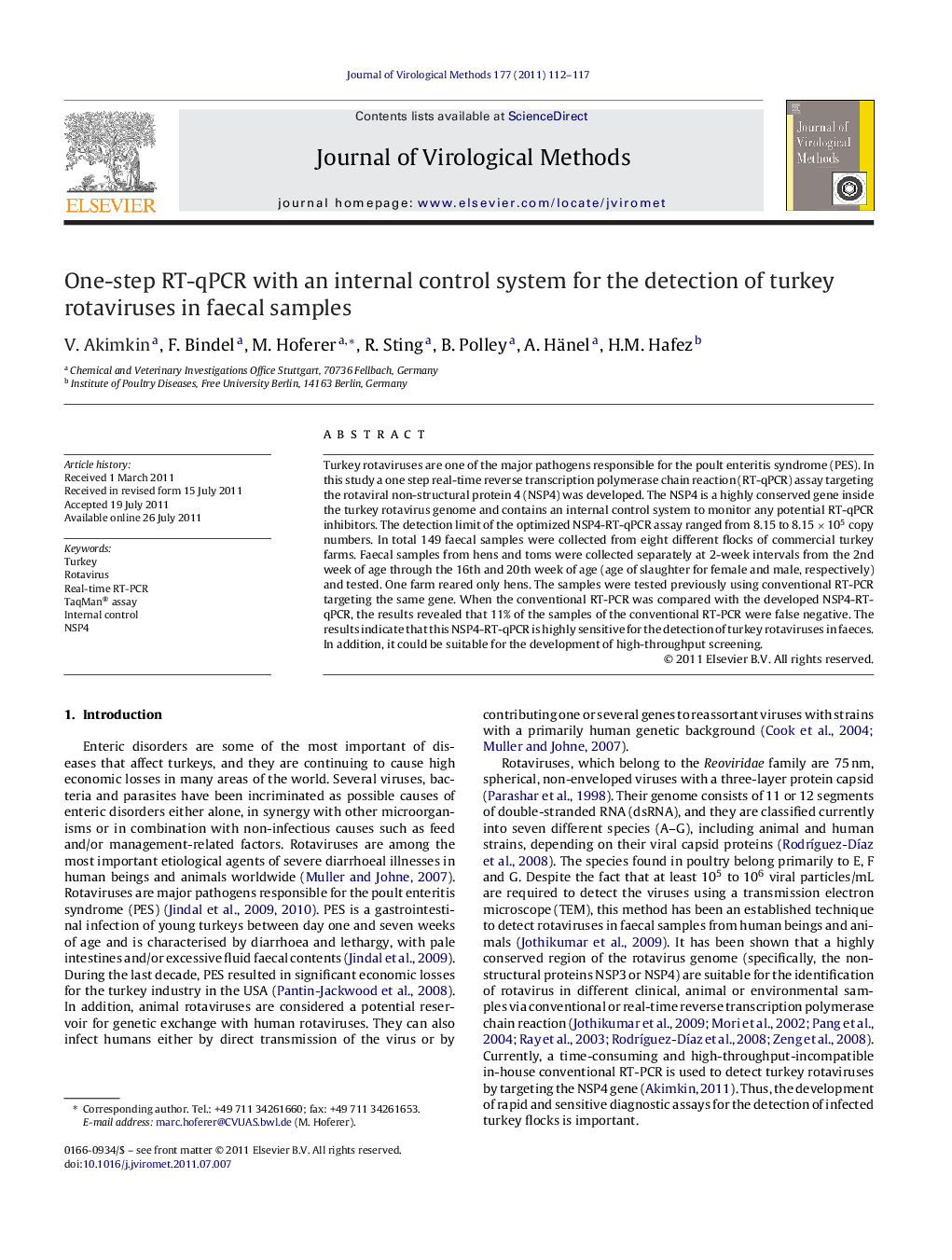| Article ID | Journal | Published Year | Pages | File Type |
|---|---|---|---|---|
| 6134984 | Journal of Virological Methods | 2011 | 6 Pages |
Turkey rotaviruses are one of the major pathogens responsible for the poult enteritis syndrome (PES). In this study a one step real-time reverse transcription polymerase chain reaction (RT-qPCR) assay targeting the rotaviral non-structural protein 4 (NSP4) was developed. The NSP4 is a highly conserved gene inside the turkey rotavirus genome and contains an internal control system to monitor any potential RT-qPCR inhibitors. The detection limit of the optimized NSP4-RT-qPCR assay ranged from 8.15 to 8.15Â ÃÂ 105 copy numbers. In total 149 faecal samples were collected from eight different flocks of commercial turkey farms. Faecal samples from hens and toms were collected separately at 2-week intervals from the 2nd week of age through the 16th and 20th week of age (age of slaughter for female and male, respectively) and tested. One farm reared only hens. The samples were tested previously using conventional RT-PCR targeting the same gene. When the conventional RT-PCR was compared with the developed NSP4-RT-qPCR, the results revealed that 11% of the samples of the conventional RT-PCR were false negative. The results indicate that this NSP4-RT-qPCR is highly sensitive for the detection of turkey rotaviruses in faeces. In addition, it could be suitable for the development of high-throughput screening.
⺠Turkey rotaviruses are important pathogens for the poult enteritis syndrome. ⺠A one step RT-qPCR assay for the detection of turkey rotaviruses was developed. ⺠The RT-qPCR assay targets the rotaviral non-structural protein 4 (NSP4). ⺠The assay contains an internal control system to monitor potential inhibitors. ⺠The detection limit of the assay ranged from 8.15 to 8.15 Ã 105 copy numbers.
